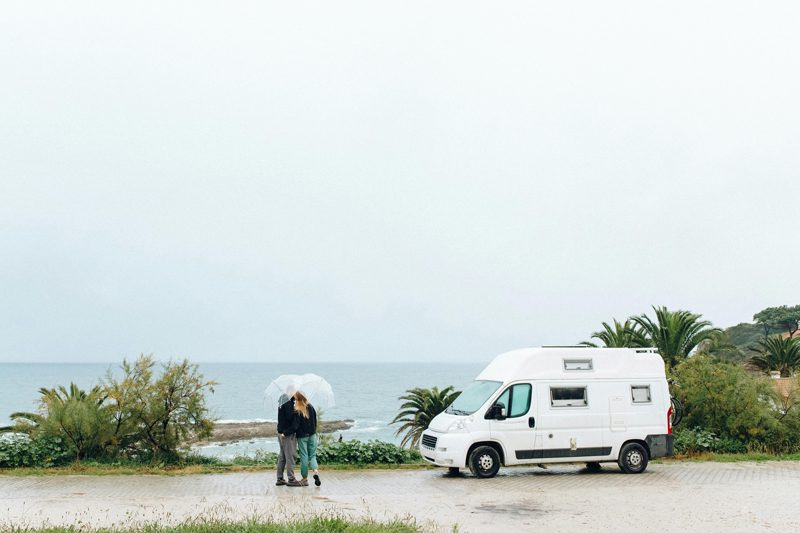In the personal finance space, “DINK” is slang that’s a bit new to the modern vernacular. Short for “dual income, no kids,” the DINK lifestyle is pretty self-explanatory: It centers around households with two earners and no children.
The term “DINK” actually isn’t new, however. It’s been floating around since the 1980s, originally referring to dual-earner baby boomer couples who didn’t yet have kids. Now, the term has seen a resurgence as more young couples intentionally choose not to have children for various reasons—many of which are financial.
Why DINK? Dual Income, No Kids Explained
Americans have been having fewer kids for decades now. A recent Harris Poll survey for Fortune found that 73% of childfree millennials believe that the freedom that comes from not having children brings them happiness. In the same survey, 77% of millennials believe they are financially better off than they would have been if they did have kids.
While simply not wanting children is one of the top cited reasons for childfree couples, money is also high on the list: 61% of millennials surveyed said that one of the main reasons they chose not to have kids is because they simply couldn’t afford to.
It’s easy to understand why: In a 2022 analysis, The Brookings Institution estimated that a child born in 2015 and raised to age 17 would cost a middle-class family over $310,000 adjusted for future inflation. And Care.com reported that 67% of parents surveyed planned to spend 20% or more of their annual household income on childcare alone.
The prominent privilege of the DINK lifestyle is financial stability. With two incomes and no child-rearing expenses, couples have an easier time focusing on building wealth, paying off debts, saving for retirement, or indulging in luxuries (should their budgets allow). Additionally, this lifestyle allows more room for personal growth, career advancement, and hobbies that may otherwise be usurped by the demands of parenthood.
5 Benefits of a DINK Lifestyle
- Improved Financial Security
- More Freedom for Personal Fulfillment
- Upscale Living and Travel Opportunities
- Increased Career Flexibility
- More Time (and Money) for Hobbies
1. Improved Financial Security
Being a DINK does not automatically mean you’re going to be rich. But, it’s also simple math. With two incomes flowing into your household and no kids to raise, there’s significantly more breathing room in your budget.
You can direct this freed-up capital toward savings, investments, debt repayment, and other wealth-building opportunities that set the foundation for your secure financial future. If you have long-term financial goals like buying a house, traveling the world, or retiring early, the DINK lifestyle presents an opportunity for a quicker path there.
2. More Freedom for Personal Fulfillment
Money is not the only thing that frees up for DINK lifestylers; so does time.
Raising kids is a full-time gig in and of itself. Without the considerable commitment and responsibility that parenting demands, DINK couples have more room to prioritize their individual interests and passions in what time they have outside of work. This can be time spent pursuing hobbies, traveling, engaging in self-care, learning new skills, furthering their education, or even starting a business.
3. Upscale Living and Travel Opportunities
The DINK lifestyle opens the door to more upscale living and travel opportunities that may be outside of the budget for families with children. With no childcare or education costs to worry about, DINK couples often have more financial freedom to invest in higher-end living spaces and travel experiences, resulting in a higher quality of life.

4. Increased Career Flexibility
With no parental obligations, DINK couples are at liberty to take on overtime, travel for business, or even relocate for a better job opportunity. It’s easier to take risks—such as switching careers, starting a new business, or going back to school for further education—without kids to worry about.
Moreover, having a dual income provides a safety net that allows for one partner to take a career break or pursue less work if need be, such as taking time off for a health issue.
5. More Time (and Money) for Hobbies
With no kids to look after, there’s more free time to pursue interests that might have taken a back seat. This could be anything from painting to photography, wine tasting to wildlife conservation, gardening to gourmet cooking—the possibilities are endless.
Not to mention, the financial freedom that stems from having a dual income and no kids means that more expensive hobbies, like classic car restoration or world travel, can be within reach.
What Does a DINK Household Look Like?
Any couple earning dual incomes with no kids in the house is technically living a DINK lifestyle. A few common scenarios include:
- Career-focused couples: Young, ambitious couples may choose to focus on their careers before contemplating starting a family. They prioritize their professional growth and financial stability, opting to delay parenthood or forgo it altogether.
- Empty nesters: Maybe you’ve already had your kids, and they’re grown, independent, and out on their own now. Assuming you’re still earning income, you’re back to being a DINK household. Empty nesters can enjoy a new phase of life with increased freedom and financial flexibility.
- Childfree by choice couples: Kids aren’t for everyone, and some DINK couples decide they simply do not want children. Their motivation could stem from personal preferences, life goals, or their commitment to other causes or pursuits.
- Couples with pets: Double income, no kids—with a dog. Some couples may not have human children, but they share their lives with furry, finned, or feathered family members. They enjoy the companionship of pets without the responsibilities associated with raising children.

Maximizing Your DINK Lifestyle
With two incomes flowing into your household and no childcare expenses to worry about, you’d be remiss in not taking advantage of your financial privilege. Here’s how you can leverage your DINK lifestyle into one of monetary savvy:
Invest in Your Retirement
CBS News reports that according to recent U.S. Census Bureau data, 50% of women and 47% of men between the ages of 55 and 66 have no retirement savings.
Without the financial demands of children, you can afford to allocate more of your income toward your future and escape the crushing burden of this statistic. Max out your contributions to your 401(k) plan if possible, and always take advantage of a company match. If you have an individual retirement account (IRA), try to max that out as well. Who knows; with some careful planning and saving, you may even be able to retire early.
Pay Off Debt
The absence of childcare expenses gives you a golden opportunity to focus on paying off any outstanding debts and steering clear of a debt relapse. This might include student loans, credit cards, or even your mortgage. Scratching these burdens off the list can provide a sense of financial freedom, reduce stress, and free up funds to use toward other priorities.
Build a Solid Emergency Fund
Life is unpredictable, and having an emergency fund provides a financial safety net for unexpected events such as job loss, medical emergencies, or major home repairs. The Consumer Financial Protection Bureau (CFPB) reports that 24% of consumers have no savings set aside for emergencies. Thirty-nine percent have less than a month’s worth of income saved.
If you ask a financial advisor, many recommend that you have enough in your emergency fund to cover three to six months’ worth of living expenses. Your specific number could be more than this depending on your personal circumstances and lifestyle. Regardless, if you don’t already have this cushion squared away, it’s time to start saving now. Living a DINK lifestyle is the perfect opportunity to sock away extra cash.
Spend Money on Experiences
Finally, remember that a little extra money can be wisely spent on making memories. Studies show that people are overall happier when they spend their money on experiences rather than material goods.
Take advantage of your expendable time and income to do just that. Travel the world, pick up a new hobby, learn a new language, go skydiving—make a plan and go for it. Your life will be all the better for it.

